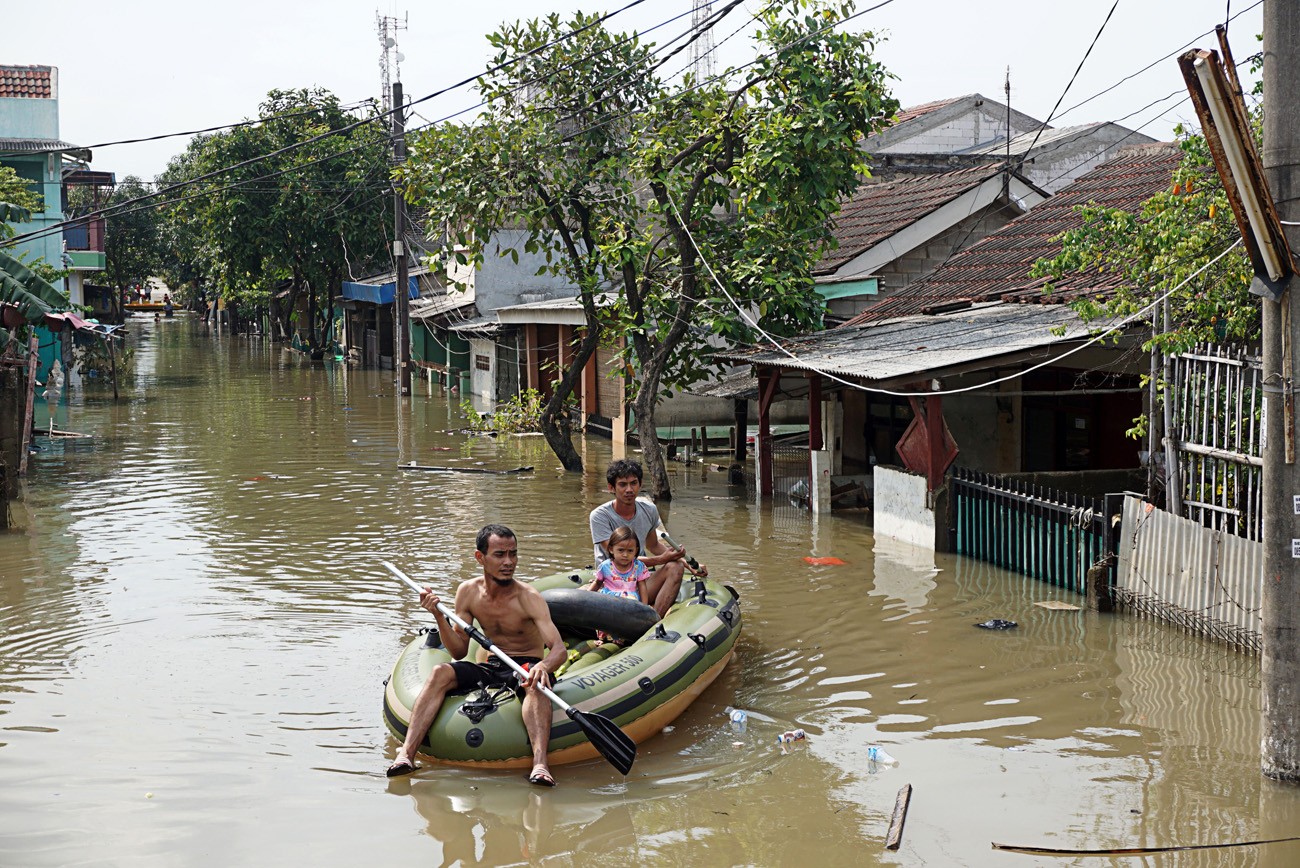Popular Reads
Top Results
Can't find what you're looking for?
View all search resultsPopular Reads
Top Results
Can't find what you're looking for?
View all search resultsExpert blames unchecked construction, poor drainage system for floods
Change text size
Gift Premium Articles
to Anyone
P
oor drainage systems and reduced water catchment areas due to excessive building activity are the main causes of flooding currently affecting several regions of Indonesia, an expert has said.
Yayat Supriyatna, an urban planner from Trisakti University in Jakarta, said apart from high-intensity rainfall, urban development in many cities of the country was not accompanied by adequate water management measures.
“Uncontrollable urban development, which does not pay serious attention to an area’s water management system, has damaged water flows and catchment areas. This has also damaged the drainage systems,” he said Thursday.
Yayat said the authorities in charge should take necessary measures to prevent natural disasters by, among others things, creating artificial water catchment areas.
“In the past, near Pagarsih in Bandung, West Java, there was Lake Aksan, which served to contain water. It’s gone now, and we’ve seen the consequence.”
Bandung is one of the cities currently hit by severe flooding. On Oct. 25, a rescue team spent nearly six hours to pull out a car from under a bridge in Pagarsih after it had been swept away by floodwater the previous day.
In the province of Riau, floods and landslides hit several areas following days of heavy rain.
Meteorology, Climatology and Geophysics Agency (BMKG) spokesperson Harry Tirto predicted that the intensity of rain would continue to increase until March next year.
“We will enter a transition phase from the wet to the dry season in April or May next year. For the time being, we will see the peak of the rainy season in December to March.” (fac/ebf)










